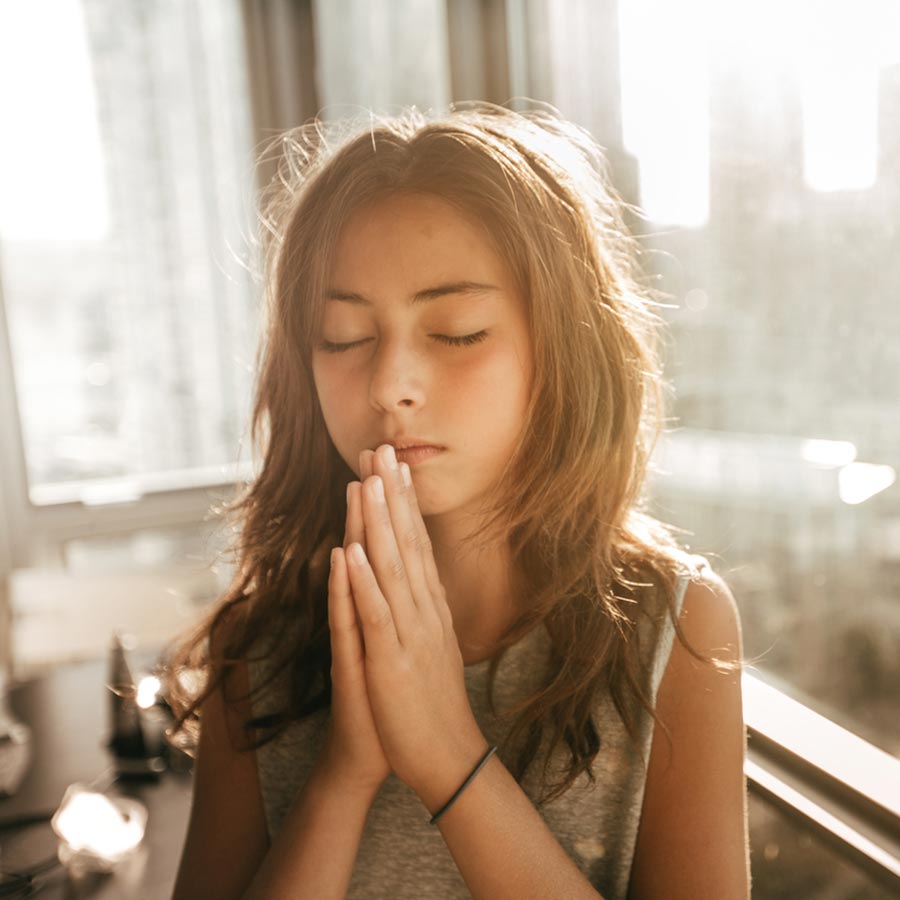The views expressed in our content reflect individual perspectives and do not represent the authoritative views of the Baha'i Faith.
Did you rebel as a teenager? I sure did. That transition from childhood to adulthood can play havoc with our minds, our bodies, and our souls.
Adolescence—the time of “raging hormones,” the time when each individual undergoes physical and emotional changes and obsesses about appearance—challenges every young person. Many become shy, demanding privacy. Most worry that others judge us solely on our looks. We become more peer-focused, caring less about our parents’ opinions, to the point that we often do the exact opposite of what they want in an effort to assert our independence.
An inward, self-absorbed period, adolescence can spark rebellion and turning away from the values of those in authority, which includes our parents and our faith leaders. But if the base we’ve been given as children is strong, having the character-building teachings of our respective religious traditions can be the unbreakable tie that allows us to navigate adolescence without becoming entrapped by the many pitfalls we encounter.
Coming from a secular home, my rebellion wasn’t against religion—it was towards it. On encountering the Baha’i Faith during my junior year of high school, I caught the life raft needed to save me from drowning in my own self-absorption. I yearned for a spiritual life, and I found it in the Baha’i teachings.
Shoghi Effendi, the Guardian of the Baha’i Faith, addressed that youthful yearning search for spirituality:
… How to attain spirituality is indeed a question to which every young man and woman must sooner or later try to find a satisfactory answer. It is precisely because no such satisfactory answer has been given or found, that the modern youth finds itself bewildered, and is being consequently, carried away by the materialistic forces that are so powerfully undermining the foundations of man’s moral and spiritual life … It is this condition so sadly morbid, into which society has fallen, that religion seeks to improve and transform. For the core of religious faith is that mystic feeling which unites man with God. This state of spiritual communion can be brought about and maintained by means of meditation and prayer. And this is the reason why Baha’u’llah has so much stressed the importance of worship. – Letter from the Guardian to an individual believer, December 8, 1935.
He encouraged each youth to:
… cultivate the sense of spirituality which he can acquire chiefly by means of prayer … The believers, particularly the young ones … should therefore fully realize the necessity of praying. For prayer is absolutely indispensable to their inner spiritual development, and this, as already stated, is the very foundation and purpose of the religion of God. – Ibid.
Ultimately, Shoghi Effendi said, the sense of spirituality we get from prayer and worship feeds our souls and elevates us “into the higher realms of the spirit:”
The universal crisis affecting mankind is … essentially spiritual in its causes … Man’s outlook upon life is too crude and materialistic to enable him to elevate himself into the higher realms of the spirit.
It is this condition, so sadly morbid, into which society has fallen, that religion seeks to improve and transform. … this is the reason why Baha’u’llah has so much stressed the importance of worship. It is not sufficient for a believer to merely accept and observe the teachings. He should, in addition, cultivate the sense of spirituality which he can acquire chiefly by the means of prayer. … this spiritual nourishment prayer can best provide. – Ibid.
 As a teenager, I experienced this on a personal level. Baha’is say an obligatory prayer daily, and have a choice of three different prayers. One is brief, offered at noontime. The medium one is recited three times a day. The longest prayer is said once every 24 hours, at a time of the individual’s choosing. The latter two prayers include specific movements.
As a teenager, I experienced this on a personal level. Baha’is say an obligatory prayer daily, and have a choice of three different prayers. One is brief, offered at noontime. The medium one is recited three times a day. The longest prayer is said once every 24 hours, at a time of the individual’s choosing. The latter two prayers include specific movements.
Having spent my first nine years living near my Jewish grandparents and attending synagogue with them, the only movement I noted was davening—the rocking back and forth Jewish people do as they pray.
So for a long time, I opted to say the short Baha’i noonday prayer. It is concise, with no movements involved. But so many people spoke of the mystic feeling that accompanies the Long Obligatory Prayer that I decided to try it. At first it felt awkward performing movements as a matter of rote while I prayed, but the words resonated with me. I kept it up, hoping eventually it would make sense.
I was rewarded by finally being immersed by a mystical feeling that God and I were indeed communing with each other. My whole being underwent transformation. My concepts of oneness and service kept expanding.
I learned that movement with prayer, whether prescribed or spontaneous, affects the soul. I’ve tried davening, it created a meditative mood while praying. I’ve danced—and became one with the prayer. Once, in a gathering as some prayed aloud, a woman got up, maraca in hand, and slowly stepped sideways, giving one shake of the maraca with each step. Others got up, formed a circle, and stepped in sync. Prayers intoned while some began to hum and others drummed. The vibrations permeated the steppers. Suddenly my feet seemed to leave the ground. I kept moving, but felt like I was floating—a truly mystical experience.
If you’ve never felt that mystic connection and you honestly want to, pray, and move as you pray. Make your prayer a song and a dance. Move however feels natural. If it doesn’t feel natural—and it probably won’t at first—do it anyway, and just keep doing it. Be patient. God will not disappoint you.
I wish you all the joy of experiencing that mystical connection with your Creator.
















Comments
Sign in or create an account
Continue with Googleor